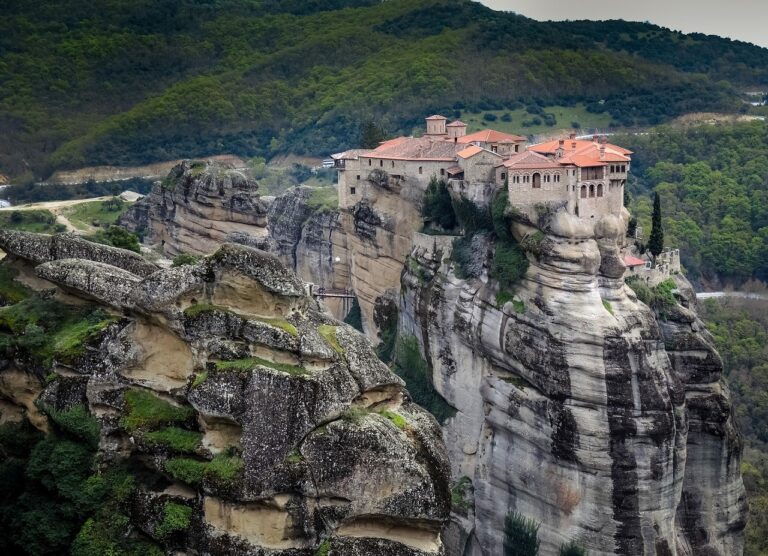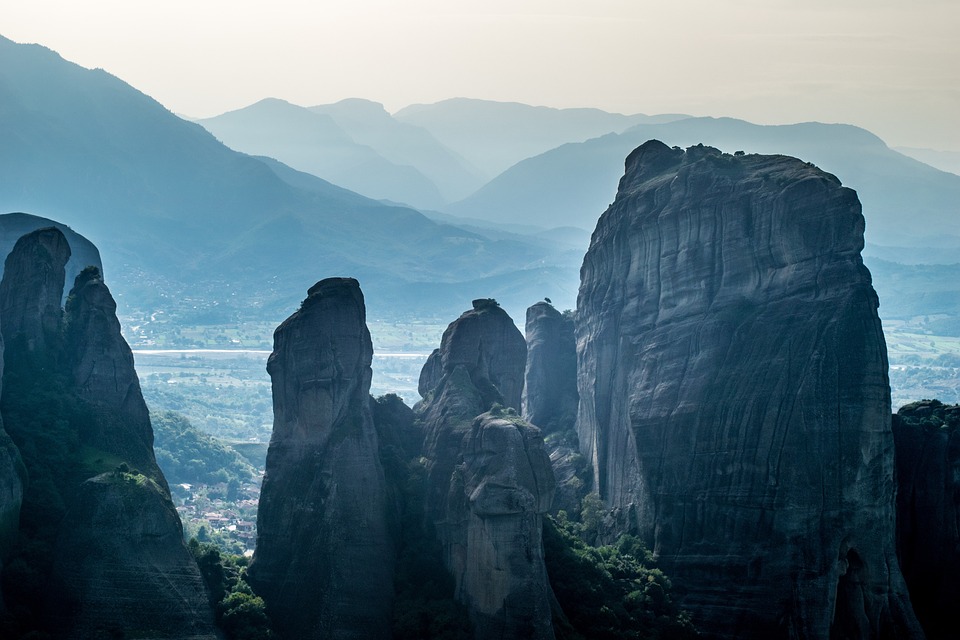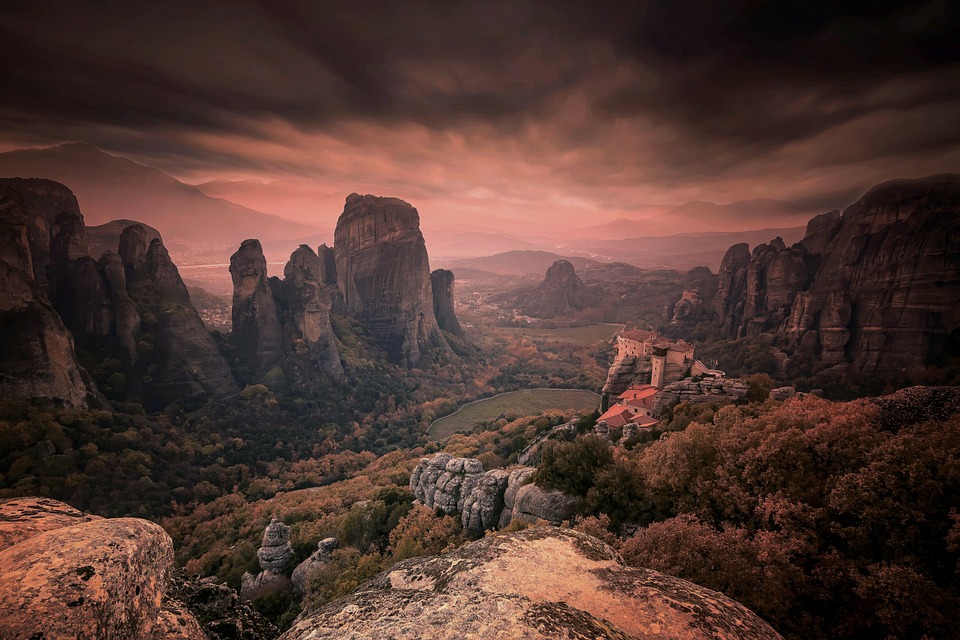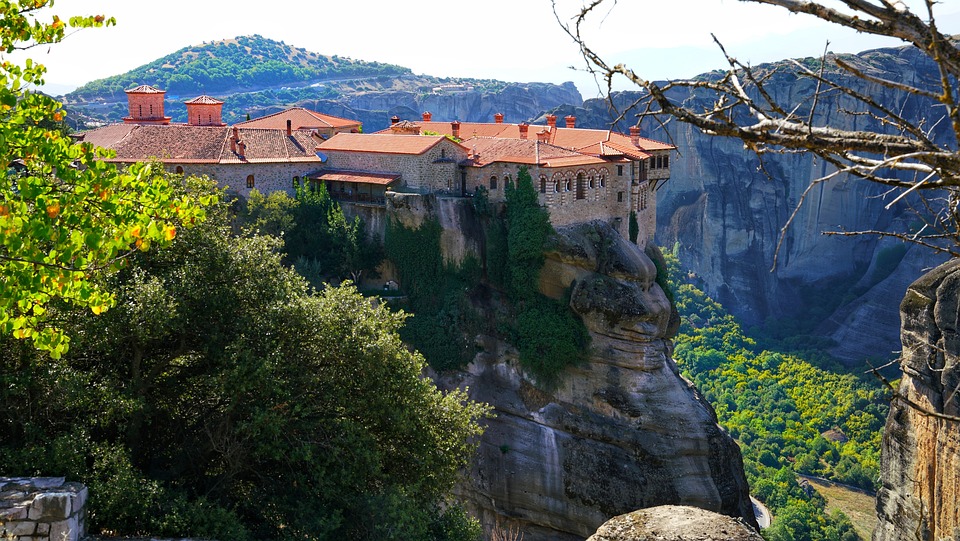
Meteors are high (reaching over 540 m above sea level) sandstone rocks. Monasteries, or Greek monasteries, were built on their peaks. Today, out of 24, only 6 remain in good condition. This is one of the most breathtaking places to see in Greece.
What are they?
Meteora (“rocks suspended in the air”) – this is the largest rock formation in the world. Some of the rocks are 500 m high. The first to settle in these areas were monks, where they could practice meditation in peace and quiet. The name of the object comes from the Greek word “meteoros”, which means “lifted up”, “being high in the air”. The nomenclature perfectly reflects the appearance of the rocks, which from a distance look as if they are floating in the air.


How were they created?
According to historical records, Meteors are believed to have formed as a result of various movements of the Earth. Many other rivers flowed into Lake Thessaly, bringing sediments and stones. After the waters receded, numerous cracks and cracks appeared in the monolith hardened from the sediments that the lake had raised for thousands of years. Then the rocks began to stratify. Erosion processes also gave a lot, and this is how Meteora was formed.
Meteora monasteries – history
The first Orthodox monasteries began to be built in the 14th century, although even earlier the hermits chose the caves in Meteora as their place of existence. The only way up was special nets and baskets suspended on ropes, transporting people, materials and food. The monks living in the monasteries experienced a period of splendor in the 16th century, when the Ottoman sultan Suleiman the Magnificent sat on the throne. The monasteries were an excellent refuge during the Serbian invasion of the Byzantine state. The first problems in the religious communities began to appear in the 17th century. They were the result of quarrels between abbots fighting for influence and power. The not very solid constructions of the monasteries also began to deteriorate – the raw materials needed for repairs were difficult to deliver to the peaks on an ongoing basis. Eventually, the government of Greece took over all the territories subject to them from the monks.


